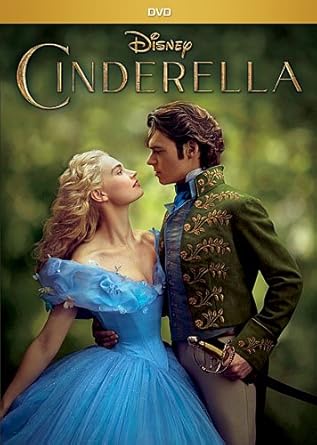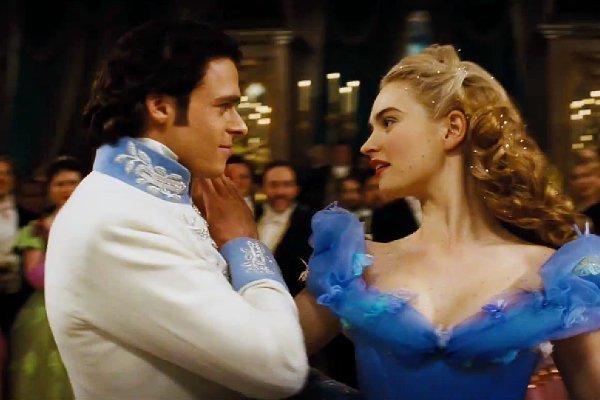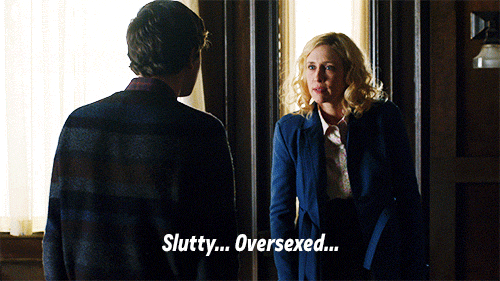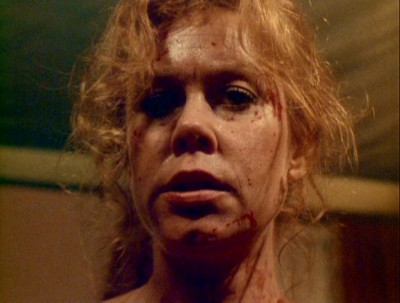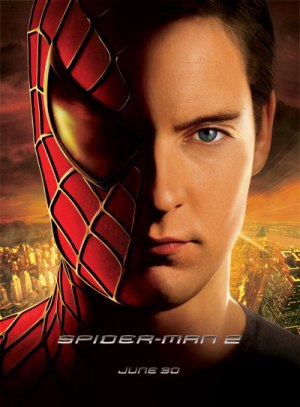THE LEGEND OF LIZZIE BORDEN
It's one of the most infamous crimes in American history: the brutal murders of Abby and Andrew Borden. The woman accused: Lizzie Andrew Borden, spinster.
Lizzie Borden has become a byword for 'psycho', a woman whom the popular culture has convicted of murdering her father and stepmother despite being acquitted for the crimes in a court of law. That's what we should remember: in the eyes of the law, Lizzie Borden did not kill her parents. However, for all intents and purposes, Lizzie Borden is forever remembered as a murderess, a cold-blooded creature whose nursery rhyme is a perverse tribute.
Borden has entered into infamy, an American figure of diabolical evil. She's been the subject of songs, plays, and even, perhaps bizarrely, a ballet (
Fall River Legend, choreographed by the legendary Agnes de Mille). No surprise that a television movie was made as well. Premiering in 1975,
The Legend of Lizzie Borden uses her tale to tell of a family in chaos, and while it presents a plausible way Borden might have done it, there's no way to prove the telefilm's theory now, nearly a hundred and twenty-five years after the infamous murders.
The film starts by saying that this story is 'based largely on fact', and it is built on historic records, for the Borden murder case was one of the first major trials given wild publicity through various press accounts of varying credibility. It was the sensation of the time, a true
cause celebre. Lizzie Borden (Elizabeth Montgomery) welcomes a neighbor into her home with some chilling words, "Papa has been murdered. Won't you come in?" Whether it is shock or cool acceptance we don't know, but there is a gruesome crime scene. The Borden patriarch, Andrew (Fritz Weaver) has been hacked to death. There are police and a lot of nosy people milling about, but when the family maid, Bridget (Fionnula Flanagan) refuses to go upstairs, a neighbor who goes with her makes a more grisly discovery. Abby Borden (Helen Craig) is dead too, hacked to death as she was making up the beds. This is a double shock to everyone.
Into this chaotic scene comes Lizzie's sister Emma (Katherine Helmond). She asks her sister one question, "Did you kill Father?" Lizzie says, "No, I did not". However, that's not the end of it. In the inquest, the prosecutor Hosea Knowlton (Ed Flanders) is quite aggressive towards the Spinster Borden. Arrogant, bullying, and condescending, Hosea leaps on all the inconsistencies and evasions Lizzie gives. As a result, she is found 'probably guilty' of murdering her parents, and held for trial.
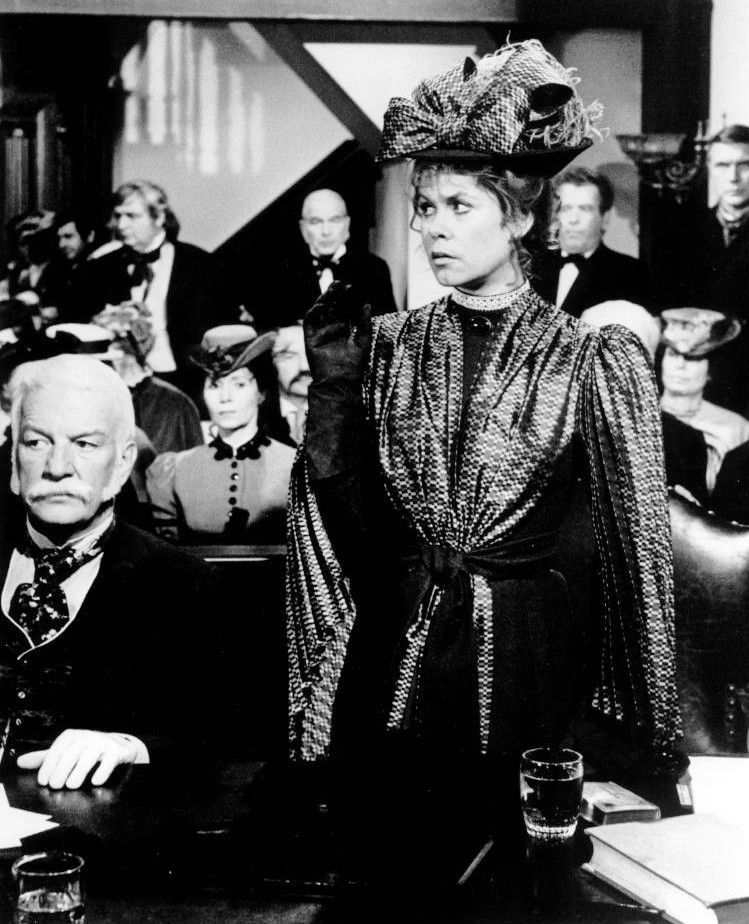
The trial becomes a media sensation: Patricide Spinster Murderess! Some, however, rally to Borden's defense, seeing this as persecution because she's a woman. The trial soon becomes a battle between the arrogant (and rather clumsy) Knowlton and the shrewd defense attorney, former Massachusetts governor George Robinson (Don Porter). Knowlton, thoroughly convinced that Borden is a murderess hiding behind her skirts, keeps making mistake after mistake. He makes mistakes in how he handles the witnesses, even friendly ones. Knowlton badgers them, bullies them, and is generally arrogant with how he treats everyone who hints at seeing things contrary to his own vision.
Robinson, for his part, is more courtly to everyone. Moreover, he uses his wits to get at the hot-tempered and self-righteous Knowlton. Robinson gets the medical examiner to testify that Lizzie Borden was on prescribed morphine when she appeared at the inquest (thus somewhat out of it, so out of it that she might contradict herself and not be aware of it). He also takes advantage of a tactical mistake Knowlton made.
In an effort to shock the jury and get them to see things his way, he shows the court Mr. Borden's skull and uses the ax found at the Borden home to prove that was the murder weapon. This he did after the forensic examiner from Harvard kept insisting that the blood found on the weapon was animal, not human (concurring with Borden's account of her father having killed pigeons with an ax, much to her horror). When he fits the ax into the skull, the shock causes Lizzie to faint in front of the jury.
We do learn other things during the trial, thanks to Lizzie's flashbacks, which show her struggles with Abby and Andrew over money, Abby's insistence on Andrew changing his will, and how the death of Lizzie's biological mother affected her. In the extended sequence, just as the jury is about to rule, Lizzie has either a flashback or a vision of the murders. We see that Lizzie killed both Abby and Andrew while nude, which made the washing off of blood easy. Whether this was real or an expression of Lizzie's drugged fantasy the film does not establish.
Lizzie Borden, having been found not guilty, goes home in an upbeat mood. Emma has beaten her to their home. She looks Lizzie in the eye and says she'll ask it once more, then never mention it again. "Did you kill Father?" This time Lizzie does not answer, and as the camera spins round her, we learn that the sisters died nine days apart and that the Borden murder case was never solved.
The Legend of Lizzie Borden is a really good Gothic horror film where all the elements come together so splendidly. The first and most important element I believe is Elizabeth Montgomery's performance (which earned her an Emmy Award nomination). Going as far away from Samantha Stephens of
Bewitched, Montgomery made Lizzie into a total human being. She made Borden sympathetic as she endured the horror of prison and accusations of murder. She then turned it around when we saw the less sympathetic aspects of Borden: her shoplifting (something so common the local merchants always added extra to the bill, which Andrew quietly paid), her somewhat haughty demeanor to Emma.
When it comes to the actual murders, Montgomery reveals more than just her body. She gives Borden this rage that is unleashed on both Andrew and Abby, a flinging fury that can no longer be contained. Much has been made of the fact that Montgomery appeared nude (though this being network television, most of this is left to the imagination, perhaps a quick glimpse of nipple at the most). That, however, should not take away from Montgomery's brilliant performance in
The Legend of Lizzie Borden. In turns whacked-out, malicious, tragic, and cold, Montgomery really reaches high in her performance.
As a side note, Hayden Rorke, better known for his work in
I Dream of Jeannie, has a small part as a newspaper reporter. Thus we are treated to a joint appearance by Samantha Stephens and Dr. Bellows.
Helmond, best known as the vampish Mona Robison in
Who's the Boss, is also excellent as the put-upon older sister. She is the only one who is innocent in this maelstrom, a woman who loves her sister but also fears her and fears for her. In one critical moment though, we get through William Bast's screenplay a suggestion, however slight, that Emma gave tacit approval for Lizzie to perhaps do her vile deed. After Lizzie tells her that she'd rather see Abby dead than have the will changed, Emma quietly says she will be leaving on a short trip to a nearby town the next day. Nothing overt, but the suggestion lies there.

This is the other brilliant aspect of
The Legend of Lizzie Borden. The screenplay leaves much to the imagination. In fact, the entire scenario of Lizzie murdering people while nude is done in a way that never states directly whether this is how it was done or whether this is how Lizzie imagined it could have happened. We get a lot of conjecture but nothing solid.
We also get to see the trial (which I think is accurate in terms of history), and see how in some ways, things have not changed. The trial of Lizzie Borden reminded me so much of the trial of O.J. Simpson. In both, the identity of the accused was used in their favor (her gender, his race). In both, the prosecutor(s) came off as aggressive, hostile, even vindictive. In both, the high-priced legal defense came across as more pleasant and shrewder. In both, the prosecution badly bungled evidence it thought would make their case (with Borden, the father's skull, with Simpson, the infamous 'black glove'). In both, they were found not guilty...but have been seen as such ever since.
At one point, Hosea makes a dismissive remark to his wife when she suggests that perhaps 'hiding behind her skirt' was the only thing Borden could do. "Next thing you know, you'll want the vote". Apart from being a sexist pig, Knowlton continuously lets his own zeal block his case, and we see that Borden didn't so much win than Knowlton lost.
The Legend of Lizzie Borden is also enhanced by the somewhat creepy score which keeps to the Victorian Era with a tinny-piano but also includes a rather off-kilter children's choir that enhances the mood of vague unease. The editing also enhanced the film, especially when we see the disastrous skull demonstration (billed as The Trump Card, each new segment having a distinct title) and when we 'witness' the actual murders. The askew angles, photography, music (or in the second murder, near-total silence save for the ticking of a clock) all create a creepy weirdness that is fascinating and terrifying.
Did Lizzie Borden really "take an ax and give her mother forty whacks"? Legally, the answer is no. Realistically, the answer is no one can answer beyond a reasonable doubt. The infamy of the Borden murders will forever taint Lizzie Borden's memory, innocent or guilty.
The Legend of Lizzie Borden, while nowhere near the definitive or final answer to one of the most infamous American crimes, is still a fascinating watch that still holds up nearly forty years after its broadcast thanks to some fine directing (by Paul Wendkost) and a brilliant performance by Elizabeth Montgomery, who never lets us know whether it was real or all in her mind.
 |
| 1860-1927 |
9/10

